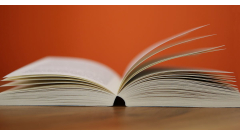Step into the bewildering world of Gregor Samsa with our enlightening guide, 'Character Transformation: Analyzing Gregor Samsa's Evolution.' This exploration will unravel the complexities of Kafka's unforgettable character, providing readers with a deeper understanding of his shocking metamorphosis and its profound implications. As we navigate through the pages of 'Metamorphosis,' the nuances of Gregor's transformation from man to insect will reveal insights into identity, alienation, and human connection.
Join us as we dissect the intricate layers of Gregor's life before and after his metamorphosis, spotlighting the societal pressures and personal dilemmas that shape his tragic existence. Our guide aims to illuminate how Kafka masterfully portrays the struggles of an individual facing an incomprehensible change, inviting readers to reflect on their own experiences of transformation and the existential concerns that arise along the way.
Franz Kafka's 'Metamorphosis' takes readers on a surreal journey when Gregor Samsa awakens to find himself transformed into a gigantic insect. This classic novella delves into themes of alienation, identity, and the human condition, as Gregor grapples with his new reality and the ensuing consequences on his family and society. Through haunting imagery and profound introspection, Kafka crafts a narrative that both challenges and endures, making it a timeless exploration of transformation and its impact on the self.
Character Background
Gregor Samsa, the protagonist of Franz Kafka's "Metamorphosis," serves as a poignant illustration of an individual burdened by familial expectations and societal obligations. Prior to his surreal transformation into a giant insect, Gregor is the primary breadwinner of his family, working tirelessly as a traveling salesman to support his parents and sister Grete. His dedication to his job stems from a deep sense of responsibility, which often manifests as an overpowering sense of obligation. As he reflects on his life, he acknowledges that he despises his work yet remains trapped in a cycle of self-sacrifice. This internal conflict is vividly portrayed in the quote, “I cannot make you understand. I cannot make anyone understand what is happening inside me. I cannot even understand it myself.” Such statements illustrate his feelings of isolation and existential despair, which underscore his identity prior to the metamorphosis.
Gregor's transformation abruptly alters the dynamics within the family. Initially, he experiences a profound sense of guilt over the burden his condition causes his family. He grapples with his identity as the provider and his newly acquired physical limitations. His self-perception is clearly articulated in the thought, “I have to do my job and provide for my family. There’s no other way.” This sense of duty underlines his initial character traits, where he feels more like a cog in the family machine than a beloved member. As the narrative unfolds, the reader begins to see how deeply entrenched Gregor's feelings of responsibility are in his self-worth, illuminating the tragic complexity of his situation. The following traits also emerge from his character background:
- Self-sacrificing nature
- Feeling of entrapment in his role
- Emotional isolation and internal conflict
- Loyalty towards family despite personal dissatisfaction
Initial Reaction to Change
Upon awakening as a vermin, Gregor Samsa is engulfed in a bewildering wave of confusion and denial. His first thoughts revolve around the mundane concerns of his daily life, such as the insistent ringing of his alarm clock and the inevitable rush to work. This stark juxtaposition between his bizarre physical transformation and his lingering preoccupation with employment underscores his internal struggle. Gregor’s immediate reaction emphasizes a profound disconnection from reality; instead of grappling with the horror of becoming a giant insect, he worries about the consequences of being late for his job. Key passages illustrate this turmoil, particularly when he laments, “If I don’t get up quickly … my boss will come here,” highlighting his ingrained sense of responsibility and the societal pressures that bind him.
As Gregor attempts to navigate his new form, denial manifests in his internal monologue. He hardly comprehends the enormity of his transformation and struggles to reconcile his human essence with the grotesque exterior. His thoughts are plagued by anxiety about the impact his condition will have on his family's financial security, revealing a deep-seated fear of disappointment and failure. Kafka crafts an unnerving portrayal of Gregor’s psyche, enhancing the themes of alienation and existential dread. Observations like “I can’t believe it,” serve to illustrate the depth of Gregor's internal conflict as he clings to the vestiges of his human identity while grappling with the implications of his metamorphosis.
- Confusion about physical transformation
- Focus on missing work and responsibilities
- Internal denial and psychological turmoil
- Alienation from family and society
- Emphasis on existential themes
Impact on Family Dynamics
Gregor Samsa's abrupt transformation into a giant insect serves as a catalyst for significant changes in his family's dynamics. Initially, his family is thrown into a state of shock which manifests as disbelief and disbelief. Gregor’s father, overwhelmed by the sight of his son’s grotesque new form, reacts with anger and fear. For instance, he physically assaults Gregor, aiming to keep him at bay when the latter attempts to reveal himself. This violent reaction highlights a shift away from concern to a disturbing realization that their son’s metamorphosis threatens their stability. Gregor’s new form not only disrupts his role as the primary breadwinner but also undermines familial connections that relied on social norms and responsibilities.
The shock then morphs into hostility, primarily driven by the family's frustrations as they grapple with both their circumstances and Gregor’s altered identity. Grete, initially sympathetic and compassionate, begins to exhibit resentment. As the story progresses, her attitude shifts from care to outright rejection, leading her to proclaim that they must get rid of Gregor. The devastating repercussions of Gregor’s transformation unravel the familial bonds, showcasing how a significant change can fracture even the most intimate relationships.
- Witness Gregor’s father’s violent outburst indicating a loss of paternal instinct.
- Observe Grete’s emotional journey from caregiver to adversary through her aggressive declarations.
Physical vs. Emotional Transformation
Franz Kafka's "Metamorphosis" offers a profound exploration of Gregor Samsa's life after his inexplicable transformation into a monstrous insect. The immediate upheaval in Gregor's physical existence starkly contrasts with his inner emotional turmoil. As he awakens to find himself in this grotesque form, his initial concern revolves around his job and responsibilities rather than his altered state. This reflects society's relentless pressure and Gregor's ingrained identity as the family provider. Kafka writes, "I cannot make you understand. I cannot make anyone understand what is happening inside me. I cannot even understand it myself." Through this, Kafka highlights the profound alienation Gregor experiences, not just physically but emotionally, as he grapples with the loss of his previous identity.
As the story progresses, Gregor's physical degradation symbolizes his increasing emotional alienation. Initially, his family reacts with shock and sympathy, but it swiftly deteriorates into hostility and resentment. The quote, "I am not a creature of this world," encapsulates Gregor's detachment from his own reality, emphasizing his feelings of worthlessness. This emotional landscape reveals a deep identity crisis as Gregor struggles to find acceptance, both from himself and his family. The juxtaposition of his physical inability to communicate transcends mere words; it underscores the profound alienation he faces. With each passing day, his family's repulsion mirrors his internal despair, creating a heart-wrenching portrayal of a man stripped of his humanity.
- Physical transformation as a catalyst for emotional decline
- The dilemma of identity and worthiness in the face of change
- Alienation experienced as Gregor shifts from provider to burden
Descent into Isolation
Gregor Samsa's transformation into a grotesque insect marks the beginning of his tragic descent into isolation in Franz Kafka's "Metamorphosis." Initially portrayed as a diligent worker, Gregor's identity is intertwined with his role as the family provider. His metamorphosis not only disrupts his physical existence but also dismantles the foundation of his familial relationships. This profound change forces his family to confront their dependency on him, revealing the fragility of their bonds. For instance, upon his first awakening in his new form, Gregor’s concern about missing work symbolizes the ultimate irony: instead of receiving empathy, he is met with horror and disbelief from those he once supported.
The stark shift in attitude from his family is pivotal. His sister Grete, who initially shows compassion, gradually grows resentful and distances herself. The moment she declares that they must get rid of him encapsulates Gregor’s profound loneliness. The family's increasing alienation extends beyond verbal rejection; they physically isolate him, limiting his space and depriving him of human contact. Gregor's solitary existence in his room emphasizes the emotional toll of his transformation, where silence becomes suffocating. Key moments, such as the family's inability to fully accept his condition, illustrate the wider societal indifference towards those who deviate from the norm.
- Gregor's concern for his family's welfare contrasts sharply with their growing shame.
- Family members’ transition from care to neglect highlights societal attitudes towards the invalid.
Symbolism of the Insect
Gregor Samsa's transformation into an insect in Kafka's "Metamorphosis" serves as a powerful symbol with multifaceted interpretations. At its core, this grotesque metamorphosis shines a spotlight on the alienation and dehumanization experienced in modern society. The insect, often seen as a pest, reflects not just Gregor's loss of human identity but also the societal pressures that often reduce individuals to mere cogs in an unfeeling machine. The absurdity of his situation—waking up as an insect—emphasizes how societal expectations can distort personal identity and highlight human vulnerability, exposing the futility of Gregor's relentless pursuit of approval from his family and employer.
The insect form can also be interpreted as a manifestation of Gregor’s repressed emotions and existential dilemmas. As he struggles to communicate with his family and maintain a semblance of his former life, Samasa's monstrous exterior serves as a stark reminder of his inner turmoil. This chilling transformation forces the reader to confront themes of isolation, failure, and the sometimes absurd nature of existence. Gregor's tragic fate elevates the insect symbolism beyond a physical ailment, rooting it firmly in the emotional and psychological struggles that plague individuals facing societal disaffection and the absurdity of life.
- Exploring the impact of societal norms on personal identity.
- Understanding the role of family expectations in Gregor's alienation.
- Examining the absurdity of existence through Gregor's perspective.
Impact of Society's Expectations
The transformation of Gregor Samsa in Franz Kafka's "Metamorphosis" is deeply intertwined with the societal expectations that govern his life. Initially, Gregor is portrayed as a dedicated employee, tirelessly working to support his family. This role provides him with a sense of identity and purpose, but it is also a heavy burden laden with the pressures of societal norms. His metamorphosis into a grotesque insect serves as a metaphor for the alienation that results from these expectations. As his ability to fulfill his role diminishes, the façade of productivity that society demands fades, amplifying his feelings of inadequacy and despair.
Kafka illustrates how Gregor's worth is tied solely to his capacity to provide for his family, which leads to his emotional and physical deterioration. The family's reaction further emphasizes societal expectations. When Gregor can no longer work, he becomes a burden rather than a beloved family member, highlighting how rigid moral and economic standards can distort personal relationships. The family's embarrassment and eventual resentment reveal a harsh truth: societal norms can engender isolation and neglect when an individual fails to comply. The dehumanizing pressure to conform ultimately strips Gregor of his humanity, illuminating the profound impact that external expectations can have on one’s self-worth and identity.
- Gregor's initial dedication to his job symbolizes societal pressure to succeed.
- The family's reaction to Gregor’s transformation highlights the harshness of societal norms.
- Isolation from loved ones reflects the emotional toll of failing to meet expectations.
Pivotal Moments of Realization
In Franz Kafka's *Metamorphosis*, Gregor Samsa experiences several transformative moments that signify his growing awareness of his predicament as a monstrous vermin. One of the most important instances occurs shortly after his transformation, when he first perceives the physical limitations of his new body. This realization is not merely about his inability to communicate or move as he used to, but reflects a deeper understanding of how drastically his existence has altered. The moment he struggles to get out of bed serves as a vivid metaphor for the psychological entrapment he faces. His initial thoughts are filled with concern for his job and the financial burdens on his family, indicating that Gregor's identity is intricately tied to his role as the breadwinner. This struggle encapsulates the first wave of disconnection between his human self and his new form, setting the stage for his emotional decline.
Subsequently, Gregor's awareness deepens during a key scene when he overhears his family discussing the burden he has become. This moment marks a poignant awakening, as he loses his sense of belonging and realizes that his family's love is conditional and tethered to his utility. The dialogue captures Gregor's profound isolation; he understands that his transformation has not only altered his physical form but has also eroded the foundation of his familial relationships. His gradual acceptance of his role as a burden leads to a significant emotional deterioration as he grapples with feelings of worthlessness and despair. Each realization serves to further embed him in a cycle of sorrow and alienation, impacting not just his mental state but also his connection to those he once loved.
- Struggles to adapt to his new physical reality.
- Awareness of his family's changing perception.
- Decline into despair and isolation.
Climax of Character Arc
The climax of Gregor Samsa's character arc in Franz Kafka's "Metamorphosis" represents the apotheosis of his internal and external struggles, marked by the poignant moment when he finally confronts the reality of his transformation. Initially a dutiful son and provider, Gregor's metamorphosis into a grotesque insect culminates in a storm of conflict as he realizes not only his physical change, but also the rift that has developed between him and his family. One of the most devastating moments occurs when Grete, his sister, who initially shows compassion, ultimately declares, “We can’t do this anymore. We must get rid of it,” highlighting the emotional chasm that has widened as Gregor's presence becomes unbearable to those he once loved.
This confrontation serves as a pivotal turning point, revealing the depths of isolation and alienation Gregor experiences. The harsh rejection from his family, breaking away from the bonds of kinship and love, underscores the tragic trajectory of his transformation. When Gregor hears his sister's outburst, it marks the peak of his psychological disintegration, forcing him to acknowledge the futility of his struggle to reconnect with his former life. The heartbreaking realization is not just Gregor’s loss of humanity but also the dissolution of familial loyalty, emphasizing how physical changes can disrupt the very fabric of relationships.
- Gregor’s gradual acceptance of his fate amplifies the emotional intensity of this moment.
- It starkly contrasts his earlier hopes for understanding and support from his family.
- The shift in Grete’s attitude paints a poignant picture of lost empathy.
Final Transformation and Resolution
Gregor Samsa’s final transformation serves as the poignant climax of Franz Kafka’s *Metamorphosis*. Throughout the narrative, Gregor transitions from a dedicated worker and provider to a burden to his family, embodying the struggles faced by individuals caught in the relentless grind of modern life. His death marks a significant resolution not only for him but also for the family dynamics that shift dramatically following this event. Rather than a tragic ending, his passing can be interpreted as an escape from the entrapment of his unfulfilling existence. The release from his monstrous form ultimately highlights Gregor’s ultimate vulnerability and loneliness, culminating in a bittersweet liberation from societal expectations and family obligations.
The implications of Gregor's death ripple through his family, serving as a catalyst for their transformation as well. With his absence, they experience a newfound independence, shedding the weight of their previous dependency on Gregor. This transition reinforces Kafka's exploration of alienation and the human condition. The initial grief soon morphs into relief, illuminating the harsh truths of familial ties that often hinge on utility and expectation rather than genuine affection. The themes of detachment and identity take center stage, raising profound questions about the nature of existence and the cost of societal conformity.
- Gregor's end reflects a tragic yet liberating resolution, emphasizing the nuances of personal freedom.
- The family's shift from dependency to independence reveals the fragility of familial bonds.
Why We Chose This Product
Choosing to focus on Gregor Samsa in this how-to guide was a natural decision, as Kafka's 'Metamorphosis' is not just a tale of physical transformation but a powerful commentary on human existence. Gregor's journey poses vital questions about self-identity and societal perception that resonate in today's world. Engaging with his character allows readers to confront uncomfortable truths about the human condition, making this examination not only relevant but essential.
- Delving into the depths of Gregor's emotional turmoil enhances literary appreciation.
- Understanding his evolution invites meaningful discussions on transformation in one's own life.
- Kafka's work serves as a lens through which we can explore themes of isolation and acceptance.
Ultimately, this guide seeks to not only celebrate 'Metamorphosis' as a literary masterpiece but to foster a meaningful connection between the text and modern realities by examining those transformative moments that define our existence.
Franz Kafka's 'Metamorphosis' takes readers on a surreal journey when Gregor Samsa awakens to find himself transformed into a gigantic insect. This classic novella delves into themes of alienation, identity, and the human condition, as Gregor grapples with his new reality and the ensuing consequences on his family and society. Through haunting imagery and profound introspection, Kafka crafts a narrative that both challenges and endures, making it a timeless exploration of transformation and its impact on the self.





![Sardinia Map [Italy] (National Geographic Adventure Map, 3309)](/media/tag/images/1566955416_1.webp?width=300&height=300)




